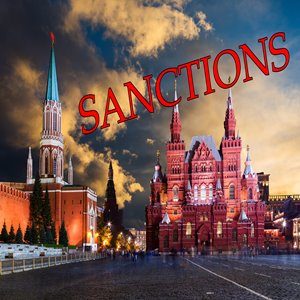In foreign policy, the path to folly is often paved with good intentions. That’s precisely what is happening regarding the legislation recently passed out of the Senate Foreign Relations Committee that hopes to rein in Russia’s bad behavior vis-à-vis the United States.
The bipartisan bill is entitled the Defending American Security from Kremlin Aggression Act (DASKA) and is sponsored by Sens. Lindsey Graham and Bob Menendez. It is aimed at a worthy goal, but its current form is deeply flawed and must be fixed quickly before it catches U.S. companies and foreign policy priorities in the crossfire.
DASKA’s goal is simple: correct Russian misbehavior by hitting that nation where it hurts — the energy sector and other vital industries. As written, the measure would sanction a broad range of Russian business endeavors, including projects outside of Russia supported by the Russian government itself and by state-supported actors.
That is a terribly wide net, which would catch a host of projects in its snares. After all, the Russian state and Russian companies are extremely active in developing and building business opportunities worldwide, especially within the key areas of influence in eastern Europe, the Middle East and across Asia.
While the “good” aims of DASKA are clear enough, so too are its flaws. That is particularly true regarding the likely consequence of directly damaging U.S. businesses, especially those engaged in crude oil production worldwide.
As the State Department pointed out in a December 2019 letter to Chairman James Risch of the Senate Foreign Relations Committee, mandatory sanctions on crude development in Russia and on new investments in energy projects outside of Russia — including liquefied natural gas export facilities — will deal a direct blow to U.S. companies in the energy sector. DASKA might be aimed at Moscow, but unfortunately it hits Dallas as well. More nuance is needed.
Beyond the energy sector, American businesses in the aerospace, agribusiness and financial sectors doing business in Russia would suffer too. The impact to the U.S. aerospace sector could be severely damaging, especially to Boeing, a firm that has invested billions of dollars in Russia for decades and that has named Russia one of its largest growth markets. By limiting Boeing’s ability to acquire titanium crucial to its manufacturing processes, most of which comes from Russia, DASKA puts Boeing directly in its crosshairs.
The intended target of the sanctions would actually become a potential beneficiary. With American companies out of the way, the Russian government and Russian competitors would be free to eliminate or capture its former U.S. partner’s share of projects. Their existing investments would be stolen away, with not real recourse.
According to the U.S. Chamber of Commerce, sanctions could “force termination of U.S. participation in more than 100 such projects around the world and obligate U.S. firms to leave their non-portable assets and investments behind or sell them suddenly at deeply discounted prices.”
As the State Department made clear to Chairman Risch, it’s likely that Russian entities could even weaponize potential sanctions by “deliberately increasing their participation in Joint Ventures and consortiums to reach the dollar amount triggering sanctions and force out U.S. companies and investments that are currently involved in those projects.”
DASKA carries implications for American foreign policy priorities, as well, offering Russia an opportunity to manipulate energy sector in exactly the opposite manner the bill is trying to address. Projects such as the Southern Gas Corridor and energy projects in the Eastern Mediterranean aren’t just business ventures, but matters of strategic geopolitical importance.
Energy projects with American ties, for example, are vital for regional energy security for Egypt and help cement the U.S.’s role in energy affairs. If DASKA passes, Russia is likely to weaponize oil production and attempt to manipulate the oil market alongside OPEC.
Fortunately, it’s not too late for a fix. Both the State Department and the U.S. Chamber have called for greater flexibility when it comes to sanctions, including making sanctions under DASKA permissive rather than mandates and creating safeguards to ensure that sanctions are used strategically. The bill could also clarify definitions of maintenance of energy facilities.
Targeting and tailoring sanctions against Russia, as the Trump administration has done thus far, is a more measured approach than broad sanctions that ignore practical realities. Especially when it comes to protecting European and U.S. commercial markets and balancing the strategic value of American interests in global energy projects, DASKA still needs a healthy dose of scrutiny from lawmakers. We need to do this, but we must do it correctly.
DASKA is riddled with flaws. To avoid a litany of unintended consequences to the American economy and U.S. foreign policy, it should be fundamentally reexamined and fixed before it reaches the full Senate. Otherwise, lawmakers could be hurting American companies while empowering and enriching a formidable adversary.
The Senate should take a breath, make the needed adjustments to DASKA, and only then pull the trigger. Action, yes, but not stupid action.
This must be wise and targeted to be effective.

